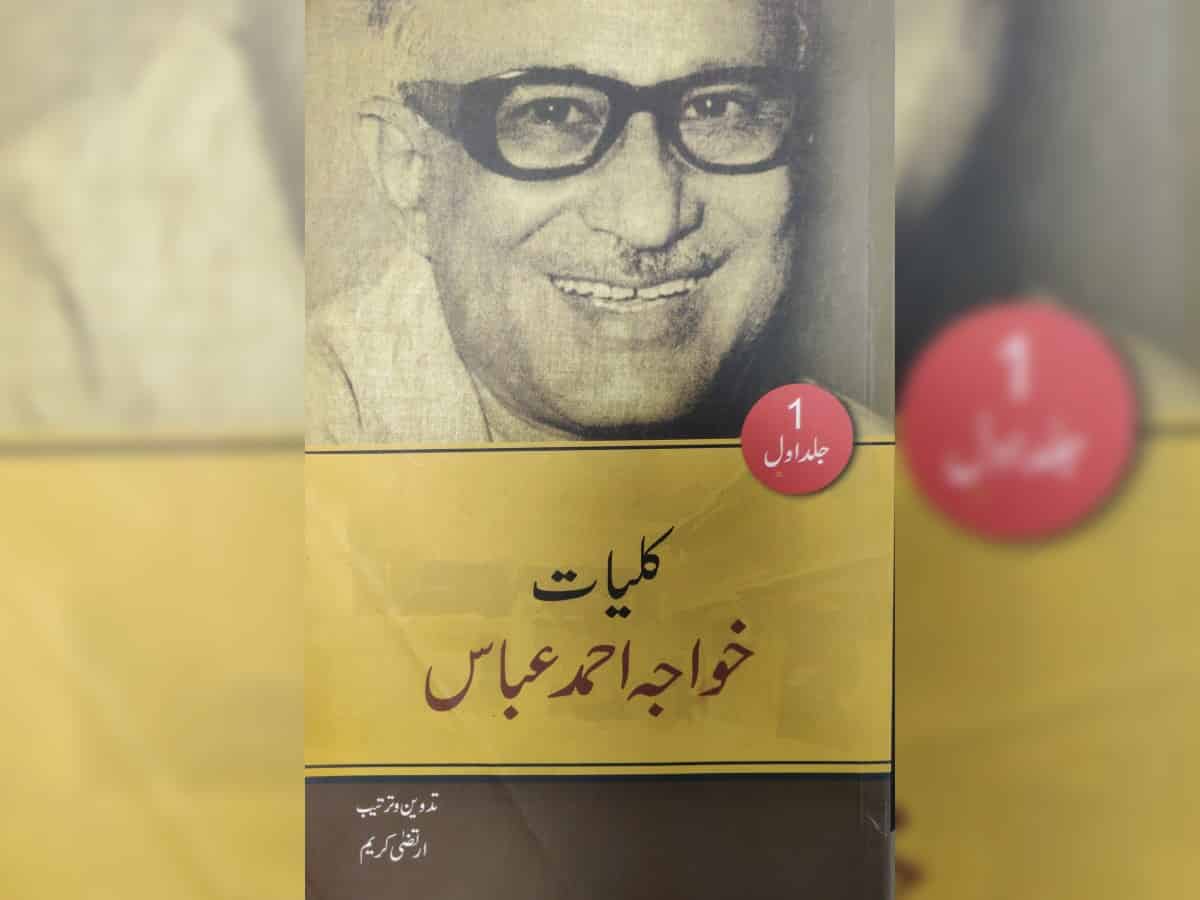
It is perplexing to learn that an author whose creative dexterity permeates through various literary genres, films and print media is hardly recognized beyond being the one who gave a break to Amitabh Bachchan, wrote scripts for Raj Kapoor and also contributed a weekly column, Last Page and Azad Qalam to a popular weekly the Blitz that appeared in English, Hindi and Urdu. It intriguingly summarizes the tale of the renowned bilingual author, journalist and filmmaker Khwaja Ahmad Abbas (1914-1987), whose enormous creative opus comprising 74 books, over 100 short stories, eleven novels, three plays, 40 scripts of films, two travelogues, an autobiography, three biographies, more than 2000 journalistic pieces either cast aside or are overlooked.
Despite having a strong ideological commitment to Marxism and being greatly influenced by Leo Tolstoy (1814-1910) and Maxim Gorky (1892-1936), Khwaja Ahmad Abbas heavily drew on the famous American liberal philosopher John Rawls (1921-2002), who propounded the theory of justice. He talked about a society where free citizens have equal rights and work for an egalitarian system. He juxtaposed Rawlsian thoughts with Nehruvian socialism in his writings, and his characters speak a language of tolerance and mutual respect.
No serious attempt has been made to spell out his oeuvre with critical acuity as fiction criticism in Urdu refers to his works, including his trail-blazing voluminous novel Inquilab cursorily. Felicitous appreciation eludes the celebrated writer, and it peeved Abbas greatly. He took exception to it by revealing a sense of disappointment and delineating his purpose of writing, “For author and critics Khwaja Ahmad Abbas neither writing a novel nor creation of literature is beyond his capacity. Filmmakers assert that his feature films are mere documentaries. He produces journalistic works through the camera. It is not the creation of art. Khwaja Ahmad Abbas says I employ all possible methods whatever I want to convey, sometimes by writing Last Page and Azad Qalam for the Blitz. Recurrently I write articles for newspapers and periodicals, and at times I pen down a short story or a novel. At intervals, I produce a documentary, direct my film, or write stories or dialogues for other filmmakers. However, they all bear out my concerns for humanity. I want to assert that an immediate and strong sense of connectedness permeates life’s internal, personal, psychological, external, social and economic aspects. Whatever happens in the world and society influences the actions and thinking of an individual.”
Abbas seems quite forthright as textual analysis avoidance-prone Urdu critics hardly look beyond Premchand, Manto, Bedi, Ismat Chughtai, Intizar Hussain, and Qurratul Ain Haider, and all writers, regardless of their awe-inspiring creative prowess, who failed to make it to the literary canon, largely remain unexplored. Eight years ago, during Abbas’s centenary, noted author Syed Saiydain Hameed organized seminars and plays and published a commemorative volume. However, it is left to the celebrated critic professor Irtiza Karim to compile all his writings, except journalistic pieces, into eight volumes with a strong sense of research acumen and academic rigour. In his astutely written preface, Irtiza Kareem points out that Abbas’s oeuvre is an invaluable and unceasing asset of popular literature and has contributed immensely to the classics. Without popular literature, belles-letters will be dried out. Popular literature has enormous appeal, but the limited readership seriously constrains elitist literature.
Irtiza, a perceptive fiction critic, took pains in putting together all his writings, excluding his columns and film scripts; the first three volumes comprise short stories (including 39 stories that are not a part of any one of the collections of short stories), eleven novels are spread over fourth, fifth and sixth volumes, biographies and travelogues form the seventh volume, and the last volume carries his three plays. The volumes acquaint the readers with the amazing range of thematic diversity and subtle use of several narrative and journalistic techniques by Khwaja Ahmad Abbas.
Irtiza Kareem seeks to locate the author in the larger perspective of social, political, economic, cultural, linguistic and religious sensibilities that held sway in twentieth-century India. According to him, the traditional tools of criticism are hardly measured to evaluate Abbas as he sets in motion a nuanced trilateral dialogue among elemental human predicament, social consciousness and power. Even his weekly column on timely topics, Azad Qalam, transcends ephemerality and attains an abiding presence. Irtiza quotes a column, Nayee Sita, Nayee Zulekha, Nayee Mariam, that appeared in 1964. It reads: Today, they all came out, marching hand in hand along the streets of Bombay-Sita, Savitri, Ayesha, Khadija, Marry, Salma, Sohini, Juliet, Padmini, Laila, Leela, Lily, Mohini, Mehmooda, and Margret. Mill-serving Maharashtrian women dressing in nine-yard sarees, Office-going girls, stenographers, typists, clerks, girls working in the plastic factories, girls working in drug units, Bidi and biscuits-producing girls are all there. Saree, frock, shalwar, trimmed hair, some putting bindi on forehead, some with lipstick, some having bangles, some having marriage or engagement rings, some carrying a newborn child, but they all carry revolutionary red flag! Every heart is filled with new hope, passion, and the slogans of the new women of India are on each lip: End price rise, give equal rights to working women, reduce the price of cooking gas, nationalize oil companies, set up crèches for working women and withdraw restriction on married women.” The excerpt articulates Abbas’s concern, and one tends to agree with Irtiza, who points out that the demands are yet to be met. A sensitive portrayal of such issues makes the author more relevant in the market-driven economy.
Irtiza Kareem did well to compile the works of Kwaja Ahmad Abbas, whose writings betray a strong commitment to liberal, progressive and humanist ideals that are still ideals of our fragmented and fact-free world.
Shafey Kidwai, a bilingual critic, is a professor of mass communication at Aligarh Muslim University
